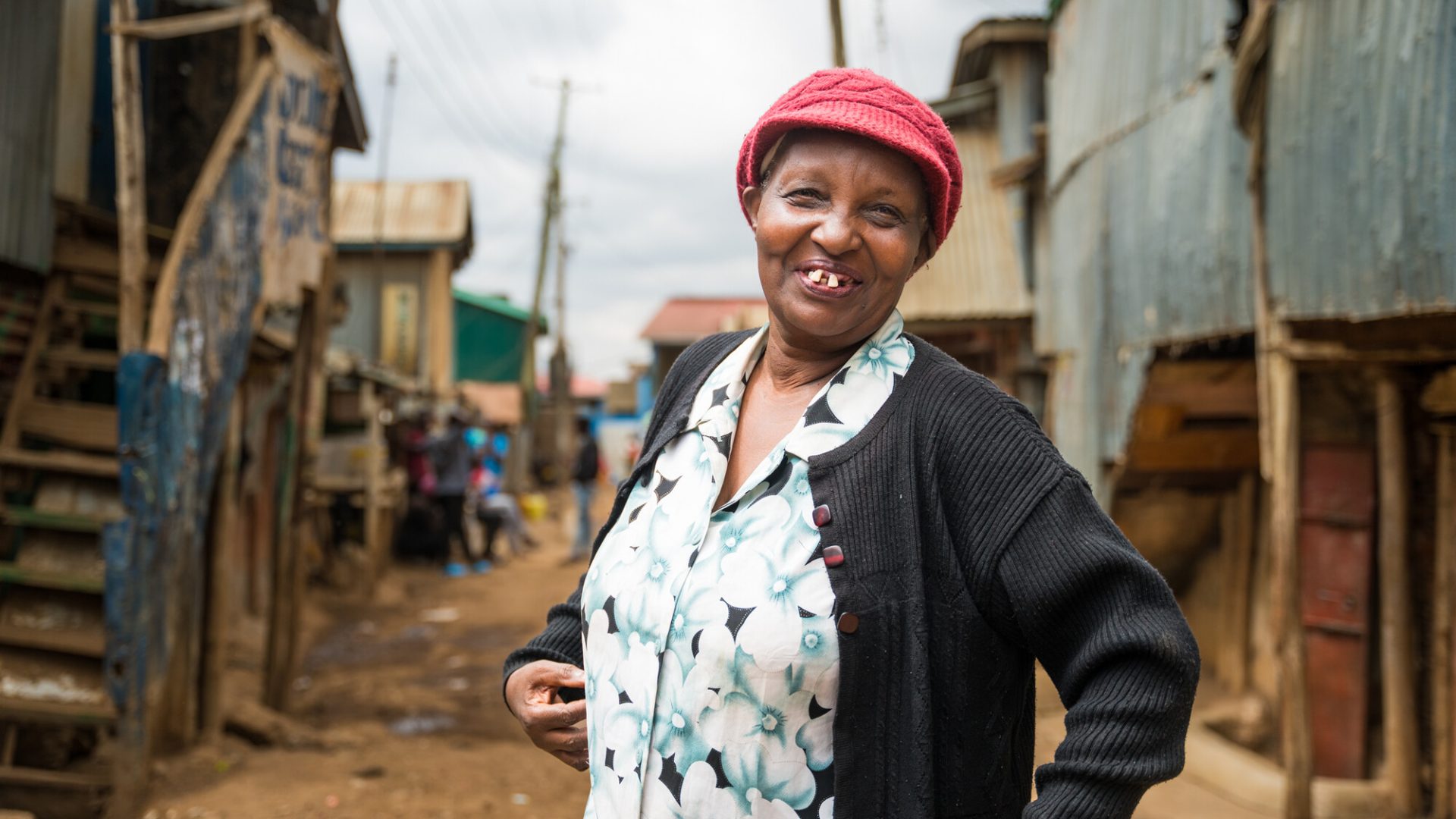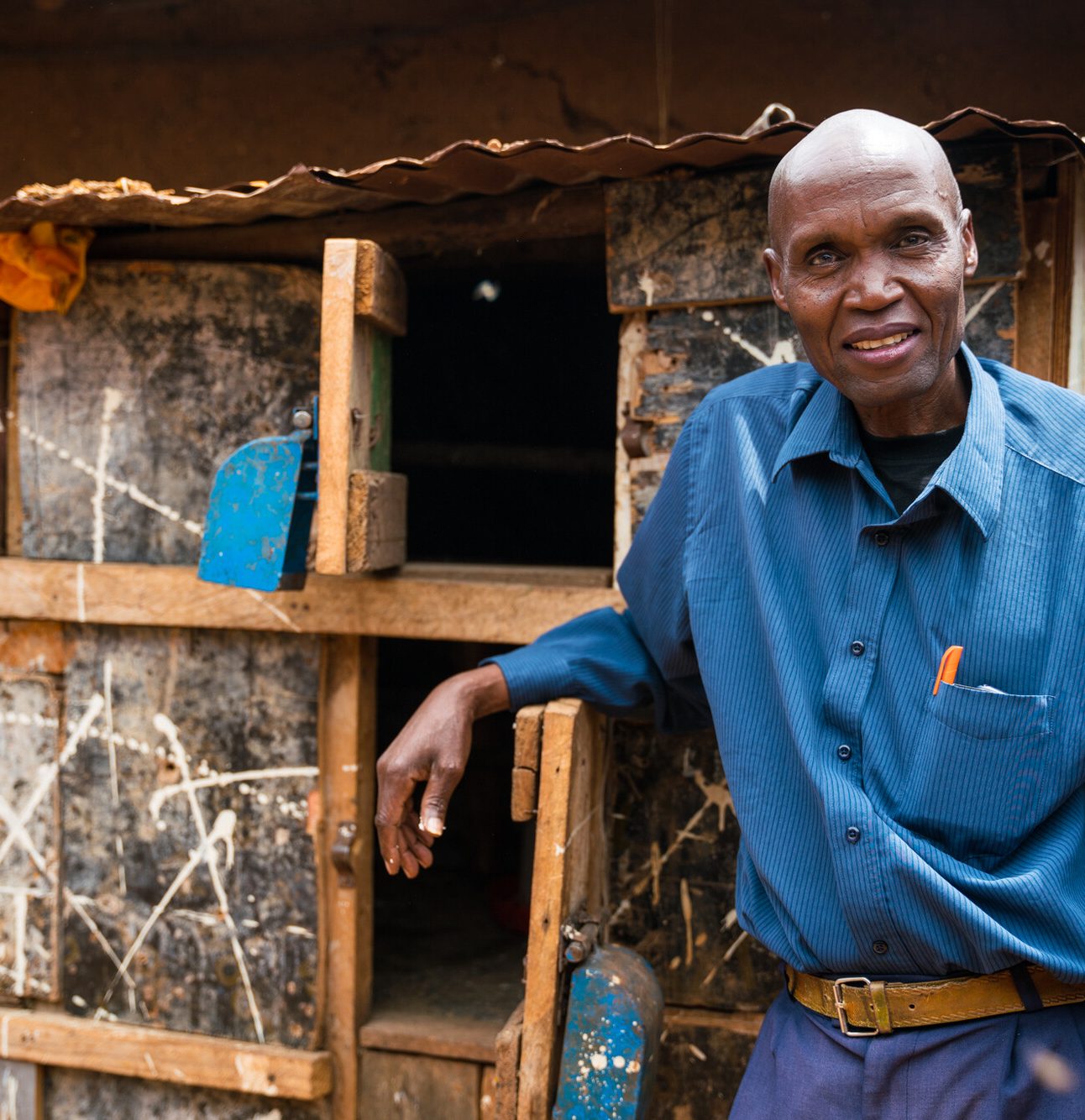About the project
To help address these issues, HelpAge in partnership with the French Development Agency (AFD) launched the Inua Jamii 70+ (IJ70+) project in 2019 in two Nairobi sub-counties. This project focused specifically on enhancing social protection and healthcare systems for at-risk older people in Nairobi’s Dagoretti and Kibra sub-counties.
The project has three main objectives:
- Improving access: It aims to ensure that older people can more easily access the Inua Jamii 70+ cash transfer programme through training, awareness, and partnerships.
- Increasing accountability: The project works to hold service providers accountable for delivering better services to older people through advocacy and monitoring.
- Enhancing capacity: It focuses on building the capacity of organisations to deliver inclusive programmes for older people.
Key innovations include combining cash transfers with healthcare services, using technology for efficient delivery, and empowering older people to advocate for their rights.
Wellbeing of older people
The AFD IJ70+ project has made a big difference in improving income security and healthcare for those in the programme in Dagoretti and Kibra, Nairobi. Thanks to the support of older citizen monitors (OCMs), older people now feel more confident in speaking up about their health and wellbeing, including pushing for better healthcare services.
Many participants shared that the regular cash payments have helped them manage their money better and reduce debt. Some have even used the funds to start small businesses like grocery shops, making liquid soap, and weaving baskets, creating extra sources of income.
“The teachings have really been very instrumental in attitude change, such as observing healthy eating, doing regular exercises, and readily reaching out to government officials and other duty bearers whenever we have concerns.” – Keziah*, 77 year old.
Use of technology as a delivery choice for the IJ70+ cash transfer
Technology has become a key part of how the cash transfer is delivered. The project has helped older beneficiaries in Dagoretti and Kibra gain new knowledge and skills through the Inua Jamii programme. Switching from manual to digital payments has made it easier and safer for older people to receive their money, reducing the risk of financial abuse by corrupt officials or caregivers. Digital literacy workshops have also empowered them to better understand and use technology for receiving their cash transfers.


